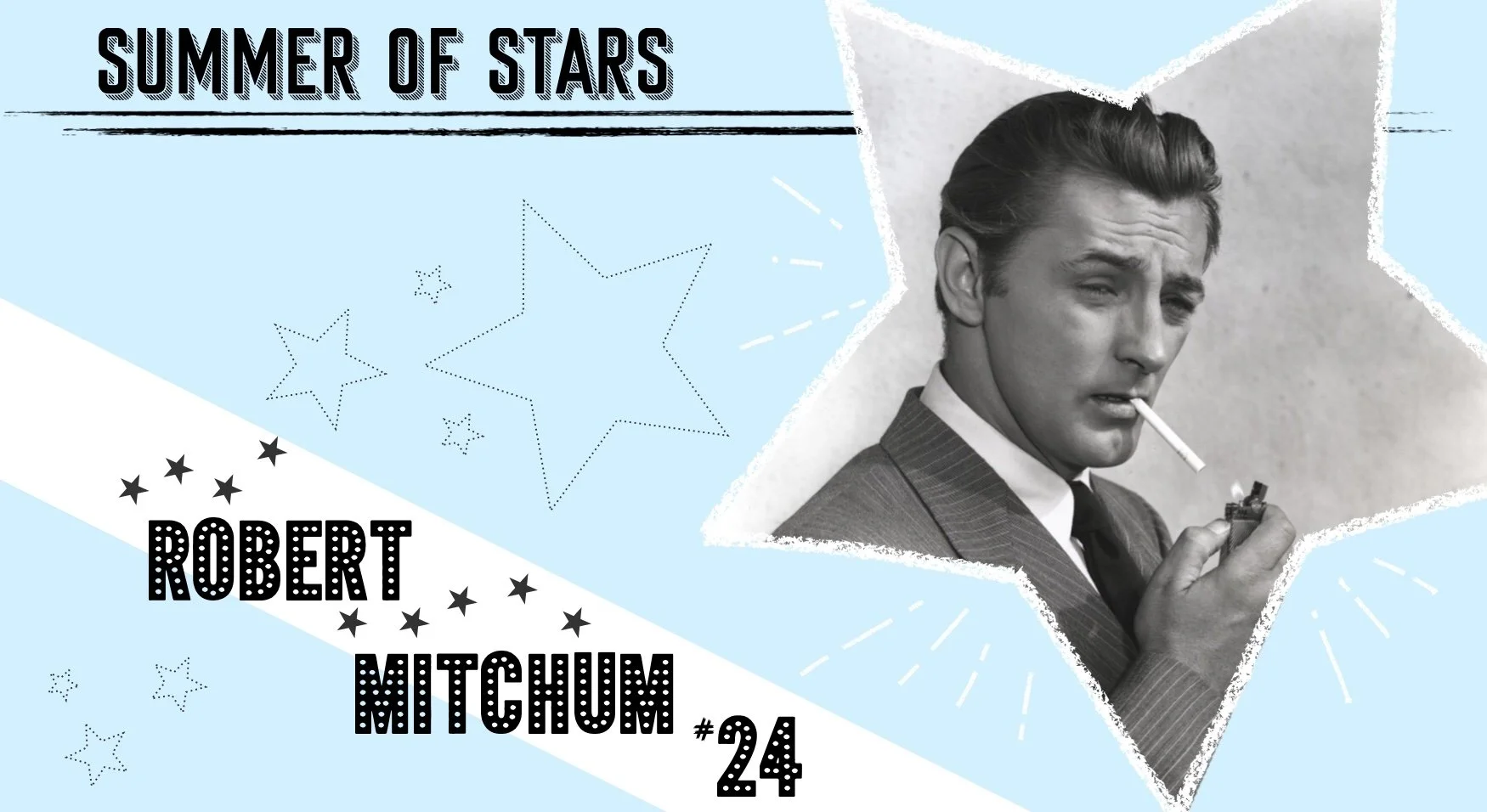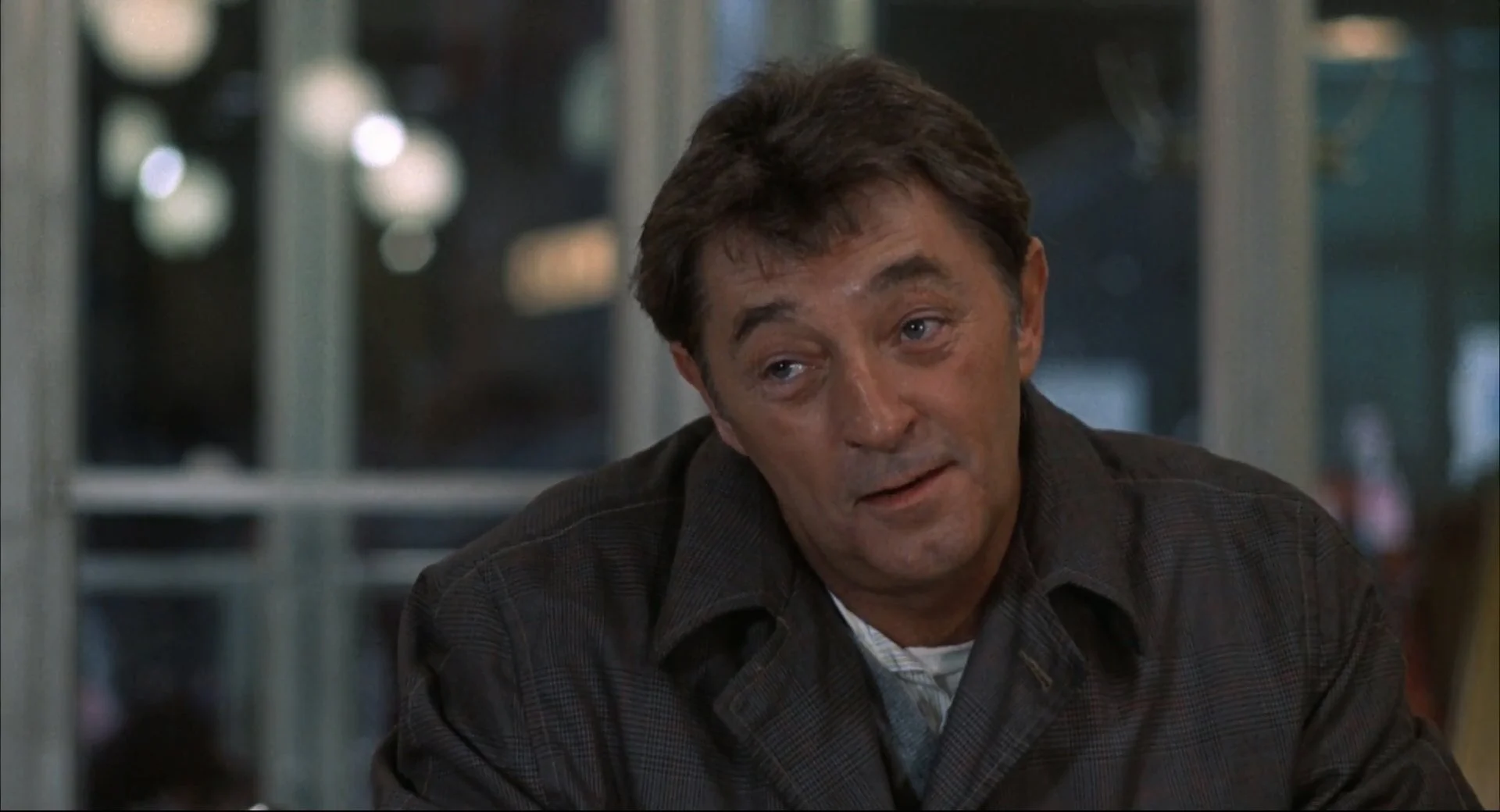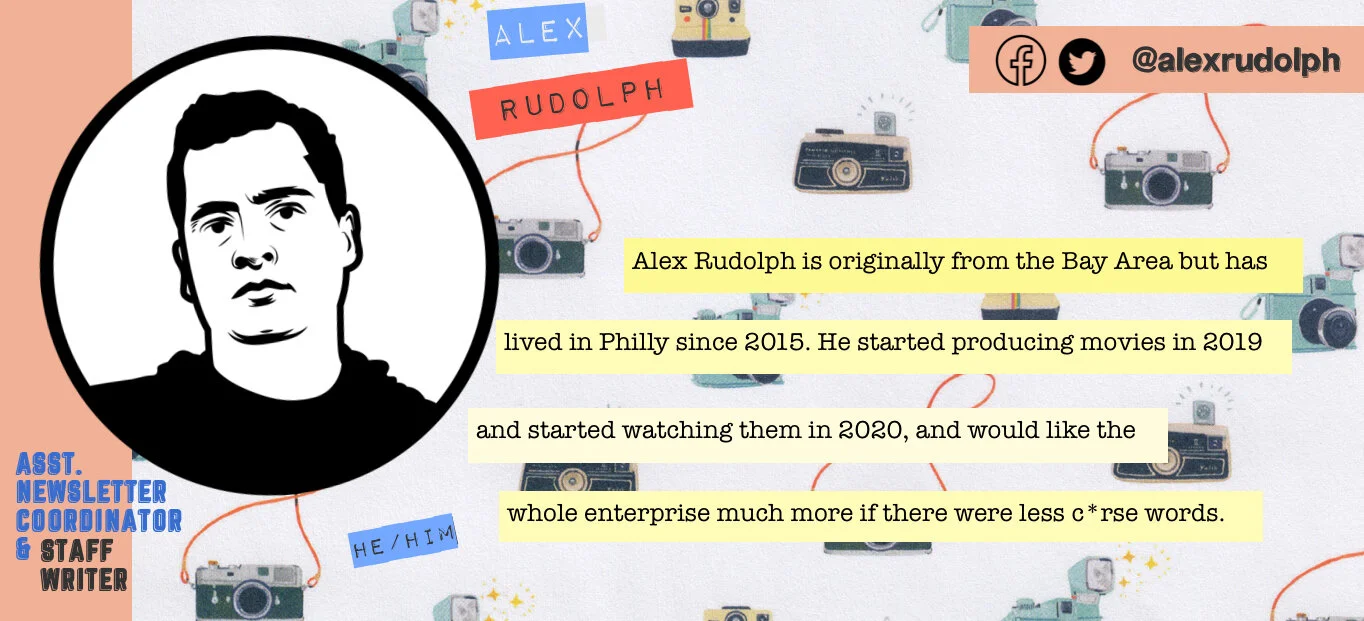SUMMER OF STARS #24: Robert Mitchum
Summer of Stars is a MovieJawn celebration of actors that have shined on the silver screen. Follow along as we count down some of our favorite players from various eras in the magical cosmos of cinema.
by Alex Rudolph, Staff Writer
Not for nothing, but whenever I read about Robert Mitchum, he sounds like a good guy. While directing the great 1953 noir Angel Face, Otto Preminger instructed Mitchum to hit his co-star Jean Simmons across the face over and over again until it looked hard and perfect, and Mitchum complied, uneasily, for a bit, before eventually worrying he was hurting Simmons. After one retake too many, Mitchum turned around and slapped Preminger, for real. He asked Preminger if he wanted to see a retake of that slap and then he walked off set.
That anecdote from Mitchum's biography has informed the way I view his performances. He was a big sweetheart capable of messing a person up. He treated extremely unempathetic characters with empathy, and even if Max Cady in Cape Fear doesn't have the same justification in hurting Gregory Peck's character's family as the actual Mitchum did when hurting Preminger, he plays it like he does. Reverend Harry Powell spends most of The Night of the Hunter trying to murder two children but Robert Mitchum is always behind his eyes, making the effort to turn a terminator into a something more grounded. It's empathy in the true sense of the word-- not sympathetic, but understandable.
When I watch a Robert Mitchum performance, I'm watching a human being. He came from the era of overactors raised watching theatre and silent film, but he underplayed everything. There's a scene in The Night of the Hunter where Lillian Gish's character fires a shotgun at Mitchum's Harry Powell and Mitchum instantaneously transforms into Daffy Duck, ricocheting around the room like a superball, but that may be the only moment in his career his energy level felt odd. Critics at the time could accuse him of being "sleepy," which is the kind of thing you say when an actor's performing in a western alongside John Wayne and you think Wayne's the one doing a good job. The Night of the Hunter bombed hard on release-- time has vindicated Mitchum's decisions again and again.
My two favorite Mitchum performances are consecutive jobs from later in his career. In 1973, he played the title character in Peter Yates' The Friends of Eddie Coyle (that would be Coyle, not the friends) and in 1974 he led the Sydney Pollack-directed The Yakuza. The latter film is an embarrassment of talent-- besides Pollack and Mitchum, you've got a script by Robert Towne and Paul Schrader, two of the best screenwriters alive. If Mitchum was really as wooden as his worst critics thought, he still could have sleep walked through The Yakuza and rode high on the abilities of everybody around him.
Eddie Coyle is a more modest film. Both films bombed, but Yakuza had Pollack hot off The Way We Were, Towne off Chinatown and The Last Detail and Schrader just before Taxi Driver, so it's always had a special place in film history. Eddie Coyle took a little longer to catch on, though it definitely did. An adaptation of George V. Higgins' first novel, The Friends of Eddie Coyle is about a career gunrunner at the end of his career. Coyle's in a weird purgatory and is desperately trying to get out. He can't ever do that-- the guy getting him underworld work is also an ATF informant-- but he doesn't fully know it, and wanders around Boston trying to pretend he has a future. Ultimately, Coyle gets killed in totally anticlimactic fashion and the world of the movie continues without any notice.
The film, postmodern in the same way some Don DeLillo novels are, works because Mitchum is so likable. He was always a good-looking guy, but in a specific way. He sort of looked like a caricature of a handsome person. In Eddie Coyle, Mitchum looks like shit., He's still handsome, but 90% of his face is taken up by the bags under his eyes. He carries himself like the top half of his body is a precarious stack of dishes. It's Mitchum taking his earlier noir roles and further emphasizing the defeatism that was already so often emphasized. You want him to get out alive. It's one of those stories where everything is so close to being fixed that it obviously won't be, and Mitchum's caught in the middle.
The man was so damn good at playing sad. It's the same empathy he had used in the first thirty-one years of his career, turned toward a guy so pathetic an actor of Mitchum's stature usually wouldn't be caught dead playing-- a guy who would pick pennies off the ground and not play it for melodrama. That's just one of the things that makes Robert Mitchum one of the great actors. He turned down George C. Scott's starring role in Patton because he thought the movie glorified war, and then three years later he played a quietly despairing schmuck in a quietly despairing movie. He viewed acting as a job, not an art form and he rejected method acting and he did the right thing. He was one of the biggest stars of his day and he pointed his talents toward whatever he felt like doing. We're lucky he had such taste.



